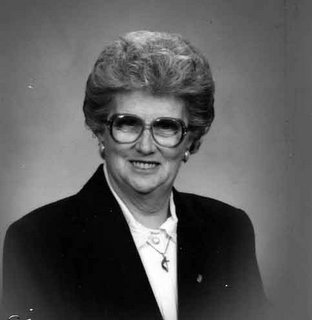
A Little Bit of History
By
Clara E. Scott
In observance of Veterans’ Day, this article will deal with the making of “IN FLANDERS FIELDS”
John McCrae composed the poem in May 1915 after witnessing the death of young friend and former student, Lt. Alexis Helmer of Ottawa during the terrible battle in the Ypres salient in the spring of 1915. This poem remains to this day, one of the most memorable war poems ever written and may be one of the famous of the Great War.
Lt. Helmer had been killed by a shell burst on May 2, 1915 and was buried later that same evening in the little cemetery (called Essex Farm). McCrae performed the funeral ceremony in complete darkness for security reasons as it was forbidden to make light.
Although John McCrae had been a doctor and served in the Boer War in South Africa, it was impossible to get used to the suffering, screams, and the blood here, and Major John McCrae had seen and hear enough in his dressing station to last him a lifetime. As a surgeon attached to the Canadian 1st Field Artillery Brigade, Major McCrae, who had joined the McGill faculty in 1900 after graduating from the University of Toronto, had spent sixteen days treating injured men – Canadians, British, Indians, French, and Germans – in the Ypres salient.
As you will see in the poem, there is significance to this.
Flanders is the name of the whole western part of Belgium. It is flat country where people speak Flemish. Flanders holds old and famous cities like Antwerp, Bruges, and Ypres. It is ancient battleground. For centuries the fields of Flanders have been soaked with blood.
“In Flanders Fields” is also the name of an American War Cemetery in Belgium where 368 Americans are buried, and is situated near the village of Waregem. This cemetery got its name from the poem though.
Poppies, why? Wild poppies flower when other plants in their direct neighborhood are dead. The seeds can be on the ground for years and years, but only when there are no more competing flowers, these seeds will sprout. When McCrae was sitting writing this poem the poppies blossomed like no one had ever seen before. The possibility of using ‘poppy’ in the poem is known as a symbol of sleep. Some kinds of poppies can be used to derive opium from which morphine can be made. Morphine is one of the strongest painkillers and was often used to put a wounded soldier to sleep.
The poem was initially called We Shall Not Sleep. McCrae was dissatisfied with it, tossed it away, but Lt. Colonel Morrison retrieved it and sent it to newspapers in England.
The following is taken from Lt. Colonel Edward Morrison, who was the commanding officer on the scene.
“This poem was literally born of fire and blood during the hottest phase of the second battle of Ypres. My headquarters were in a trench on the top of the bank of the Ypres
Canal, and John had his dressing station in a hole dug in the foot of the bank. During periods in the battle men who were shot actually rolled down the bank into his dressing station. Along from us a few hundred yards was the headquarters of a regiment, and many times during the sixteen days of battle, he and I watched them burying their dead whenever there was a lull. Thus the crosses, row on row, grew into a good-sized cemetery. Just as he describes, we often heard in the mornings, the larks singing high in the air, between the crash of the shell and the reports of the guns in the battery just beside us. I have a letter from him in which he mentions having written the poem to pass away the time between the arrival of batches of wounded, and partly as an experiment with several varieties of poetic metre.”
AND NOW THE POEM:
IN FLANDERS FIELDS
In Flanders fields the poppies blow
Between the crosses, row on row,
That mark our place, and in the sky
The larks, still bravely singing, fly
Scarce heard amid the guns below.
We are the Dead, Short days ago
We lived, felt dawn, saw sunset glow,
Loved, and were loved, and now we lie
In Flanders Fields.
Take up our quarrel with the foe:
To you from failing hands we throw
The torch; be yours to hold it high,
If ye break faith with us who die
We shall not sleep, though poppies grow
In Flanders Fields.